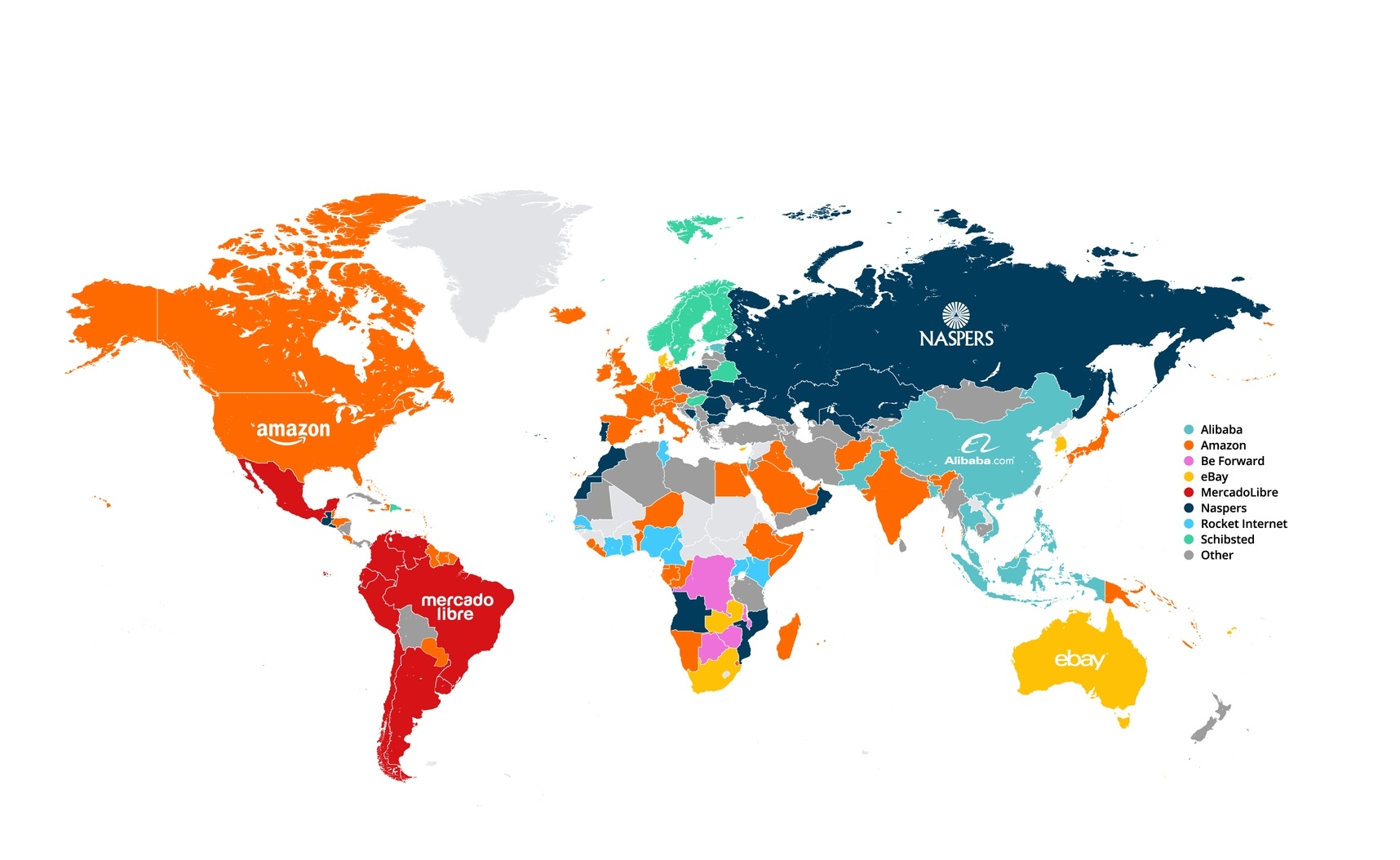Entering new territories and markets as a retailer or brand can be an expensive, time-consuming and sometimes risky venture.
Not only must you commit capital expenditure for ground staff, warehousing, website translation and office space, you also never know how well your products will sell in that country.
Nevertheless, it is expected for retailers to internationalise in order to grow the business.
The solution? Online marketplaces
Online marketplaces such as Amazon and eBay offer a great way to test territories without committing any capital expenditure. This lower cost of entry means that retailers can focus their time and money where it is needed.
All that’s required is operational expenditure; that is, your SaaS platform and fulfilment service for example. This is significantly cheaper than setting up shop in different countries and allows you to trial the profitability of your products before you decide to take the next step.
But while you may naturally think of Amazon and eBay in this regard, most retailers don’t consider foreign marketplaces such as Flipkart in India, Rakuten in Japan or Alibaba in China. They can help you reach a much wider audience and earn you new customers all over the globe.
While many of these marketplaces may have their own fulfilment service, you might need to use an external fulfilment service such as ShipStation.

Are online marketplaces so important?
In a word: yes. They are often the first port of call when consumers search for products.
Here are some stats* to get the ball rolling:
Amazon:
- 66% of US product searches start on Amazon, as opposed to search engines (20%).
- 310 million active customers
- 31% share of UK online retail sales in 2018
- 59.5 million Amazon Prime subscribers worldwide
eBay:
- 23 global sites across 190 markets
- 175 million buyers
- No additional membership fees for selling on multiple sites
- eBay dominates Australia with 21m visits per week
Alibaba & Tmall:
- 400 million active buyers
- Over 100 million daily unique visitors
- Alibaba has a 53% share in ecommerce shares in China
Rakuten
- 115 million registered users
- 45,500 merchants trading on its marketplace
- Dominating Japan’s ecommerce space
Yandex:
- 53 million monthly users
- 20 million unique daily visitors
- 58% share of the Russian search market
Flipkart:
- 28 million users
- 25,000 merchants on the platform
- Captures 51% market share in India
*Source: Internet Retailing
Countries and Their Online Marketplaces
Marketplaces are huge in the UK and overseas.
This map demonstrates which marketplaces are most popular in which country:

As you can see, the most popular online marketplaces in each country are not limited to Amazon or eBay. For example, Alibaba is the most popular in China, whereas Naspers dominates Russia and Eastern Europe.
eBay is still the most popular marketplace in Australia, despite Amazon’s arrival last year and for the United States, the United Kingdom and a handful of other countries, Amazon takes majority market share.
Cross borders with:
Amazon
Having surpassed the $1tr value mark in 2019, Amazon’s market share is hardly surprising and their growth doesn’t seem to be slowing any time soon.
If you’re selling on Amazon in the UK or any other European country, it could be beneficial for you to spread out into countries such as Germany, France, Spain and Italy. Being so close to each other, they can be treated like one marketplace as Amazon has built infrastructure such as Pan-European FBA (Fulfilment by Amazon) to allow this.
Marketplace Pulse reported that: “84% of Amazon.es marketplace sellers also sell on other European marketplaces. 78% of Amazon.fr, 77% of Amazon.it, 53% of Amazon.de, and 50% of Amazon.co.uk. Across all marketplaces more than half of the sellers also sell on at least one other marketplace.”
If you’re selling into one of these territories and not already taking advantage of this, our advice is to look into marketplaces as soon as possible.
eBay
With no extra membership fees to pay, selling internationally on eBay is a profitable strategy to expand your business. eBay provides these options:
- Basic international selling
This is the simplest of options and the first one to try when you are testing those international waters on eBay. You might not see an immediate uplift in global sales as your products will be tagged with “international seller”, which sometimes deters shoppers if they’re buying from their domestic site.
They will also be automatically translated, which may not be for the best when it comes to SEO. Consumers search with specific terms and product data needs to always be optimised to this search intent.
- Advanced international selling
This option allows you to sell on all 23 sites, allows you to create individual listings and tailor prices to each market. This means you can remain competitive in all markets.
- eBay global shipping programme (GSP)
This is eBay’s fulfilment option for UK sellers. All retailers need to do to sell overseas is send their products to a shipping centre, which is the only fee they will have to pay. eBay then does the rest of the work and handles international shipping fees.
If you’d like to find out more about eBay’s international selling options, click here.
Experimentation on product data
When you’re listing into different territories, it’s important to test keyword options as you don’t always know what will work best for each.
This is a given for non-English speaking countries, but even for English-speaking countries such as Australia or America, language translation is still important.
For example, while consumers in the UK might be searching for “flip flops”, in New Zealand they will be searching for “Jandals” and in Australia, they will be searching for “thongs”.
It might seem like a lot of work, but this insight is invaluable. The keywords you use can make or break your product listing ads.
The Intelligent Reach Platform allows clients to experiment on titles, images, promotions and categories so click here for more information.
Handling returns
Your next concern is most likely how you’re going to handle returns. This can be done simply through a global returns company such as ZigZag, allowing you to consolidate, refurbish, locally redistribute, recycle, destroy or resell stock internationally on a revenue share basis.
How Intelligent Reach makes Internationalisation with marketplaces easy
The multiple specifications required for each marketplace can make doing all of this incredibly stressful without a product data management platform.
We can help you list into multiple territories and adjust your product data feeds based on individual channel specifications. We also handle order syndication so that you’re only appearing for the items you have stock for.
Read more about how we help with marketplaces here.
Still unsure about internationalising with online marketplaces? Have a chat with one of our team.

Want to sell on marketplaces?
Find out how Intelligent Reach platform can help manage catalogue distribution, order and stock information, all in one place.
Let's chat











 River Island
River Island